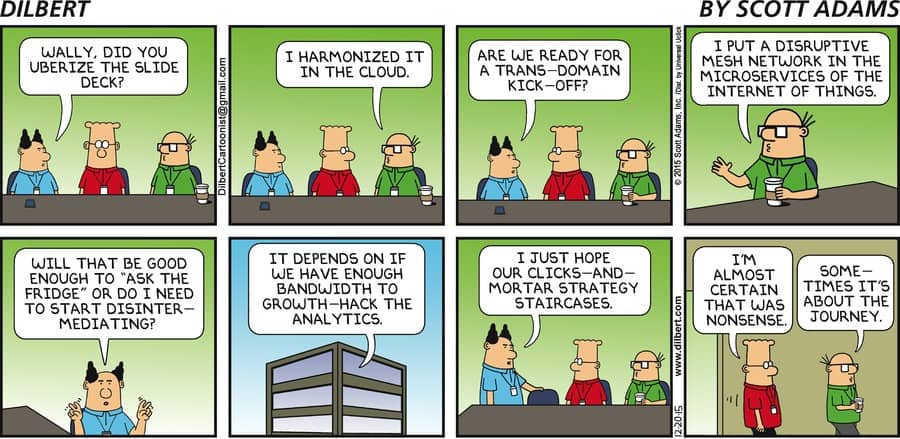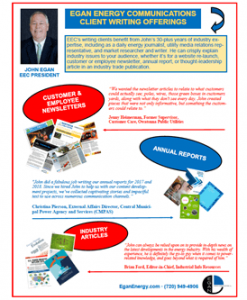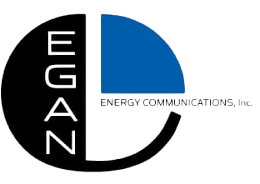
Credit: iStock
Take a look at that wall of Post-it notes. How many of those buzzwords and meaningless phrases have crept into your vocabulary (and hence your writing)? I will own up to using a few of those phrases, including “client facing,” “business-to-business” and “integrated.” But I have never “basted the turkey,” “boiled the ocean” or “eaten dogfood,” mine or anyone else’s. So, I guess I still have some standards!
Stop Trying to Baffle with Buzzwords
We blog periodically about the importance of using clear, simple terms when communicating with employees, customers or other stakeholders. Like here. And here. Playing buzzword bingo (a sample card is below) can keep you engaged and entertained during even the most boring business meeting. Putting a copy of the card at your workspace is one way to bring the message home (I checked – not a buzzword!). 
If we wanted to use a prohibited buzzword, relying on this card to eliminate jargon and buzzwords from your work would make you “eat your own cooking,” which sounds so much more appetizing than “eating your own dogfood.” (see Post-it notes above).
Buzzword Banning a New Year’s Tradition
Each January the Financial Times used to recognize the worst examples of corporate blather and double-talk with its Golden Flannel Awards. Sadly, that columnist no longer runs that contest and writes up the winning entries, but there is no shortage of other places one can consult to get a fresh list of no-nos.
Communications tip of the month: Say (and write) what you mean and mean what you say (and write). If you’re tempted to sprinkle your content or conversation with a trendy buzzword, ask yourself how you would respond if you heard it/read it from someone else.
The Atlantic ran a contest last year and found a delightful way to pit one buzzword against another and display the results in a bracket modeled on the NCAA’s March Madness basketball tournament. I would have paid good money to see “lean in” battle “value proposition” in the finals!
A few weeks ago, The New York Times ran a wonderful article on buzzwords in the advertising industry. I don’t expect any of their top terms, including “humaning,” “brand heat,” or “hypertelling,” will find their way into energy company writing — they’re too out there (checked – not a buzzword!). But because there is an ongoing churn between energy companies and their ad agencies, you may want to keep this list close if you are considering making a jump to an agency.
If you’re a devoted reader of the Dilbert cartoon strip, perhaps you’ll recognize Scott Adams’ take on corporate piffle:

Credit: DILBERT © Scott Adams. Used By permission of ANDREWS MCMEEL SYNDICATION. All rights reserved.
After a buzzword has been used with enough frequency for a long enough time, it becomes a cliché. My college alumni magazine ran a piece on a lexicographer’s favorite clichés that he ultimately came to hate. Some of his favorites are “elephant in the room” and “change the calculus.”
And, if all else fails, simply google “business buzzwords 2020,” or “corporate bingo” and you’ll get lots of terms to avoid.
Buzzword Generators Make BS-hunting Fun
Some of my favorite buzzword-related sites are the buzzword generators, such as here and here, where you can push a button to generate buzzwords. Some of the better (i.e., more horrid) ones include “disintermediate dot-com partnerships” and “empower turn-key e-tailers” and “bubble up virtual services.”
Or, if you’re old school, like me, you could read the powerful essay by George Orwell (left), “Politics and the English Language”. I read it as a college student and reread it periodically to reaffirm my belief in the power of crisp, clear writing.
- Never use a metaphor, simile or other figure of speech which you are used to seeing in print.
- Never use a long word where a short one will do.
- If it is possible to cut a word out, always cut it out.
- Never use the passive where you can use the active.
- Never use a foreign phrase, a scientific word or a jargon word if you can think of an everyday English equivalent.
- Break any of these rules sooner than say anything outright barbarous.

Dear readers, there are many ways to improve the quality of writing. It doesn’t have to be dull or dreary! One way is to simply write more frequently. Like throwing a curve ball or baking a cake, writing is a craft that combines art and science, with lots of room to personalize. You get better the more often you practice.
You could start small, vowing to eliminate from your emails any trace of blather, corporate BS and trendy buzzwords. Or you can go the humorous route by playing buzzword bingo at your next departmental or all-hand’s meetings — then scrubbing all of those phrases from your own vocabulary. If you like following rules, I recommend placing Orwell’s six rules or a buzzword bingo card next to your keyboard, where you can see it as you compose.
Doubtless some of you have your own methods. All that is required is a sincere desire to improve the quality of writing. The tools will appear readily enough.

EEC’s Writing and Content Strategy Services are Here to Help You!
EEC’s writing clients benefit from John’s extensive industry expertise, with his background as an energy journalist, media relations representative, and market researcher and writer. He can crisply explain technical and other issues, without using industry jargon that nobody understands, to help utilities engage better with their stakeholders, whether it’s for website content, newsletters, annual reports, or thought-leadership articles.
Check out this video to see how EEC can help you with all those writing and content projects that are on your calendar for 2021!

